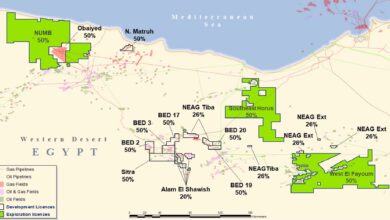IADC files amicus brief in support of deepwater drilling
IADC has filed an amicus brief supporting the resumption of deepwater drilling. The brief, filed before the US Fifth Circuit Court of Appeals, supports plaintiffs Hornbeck Offshore Services et al, who won a court ruling on 22 June from US District Judge Martin Feldman lifting the six-month deepwater drilling moratorium imposed by US Secretary of the Interior Ken Salazar. The moratorium applied to all drilling in water depths exceeding 500 ft.
Following Judge Feldman’s ruling, Secretary Salazar announced the Department of Interior’s (DOI) intention to appeal. The Fifth Circuit Court of Appeals indicated that it would hear the appeal on 8 July.
IADC members have a strong interest in opposing the moratorium, which could also devastate Gulf Coast communities.
“The question is not whether the drilling moratorium will have a severe effect on the economy of the Gulf Coast,” the amicus brief states. “No one doubts that. The question is more basic: whether the local economy can even survive the moratorium.” The brief cites news reports and comments from public figures and citizen groups warning of dire economic consequences, including a “catastrophic” loss of jobs. Analyst firm Raymond James & Associates estimates that the number of jobs at risk could approach 50,000.
Further, a sustained moratorium will drive mobile rigs out of the Gulf of Mexico. “Due to their high daily operating costs, the moratorium will force the mobile rigs to relocate, taking thousands of jobs with them,” the brief warns. These highly specialized deepwater drilling units can realize earnings of $500,000/day in several markets outside the US, such as Brazil, West Africa and Indonesia.
Further, the moratorium will severely cut oil production in the Gulf. “It will necessarily decrease US oil production and thus increase America’s dependence on foreign oil,” the brief states. The brief refers to a study by industry analysts Wood MacKenzie, which found that deepwater Gulf of Mexico production will fall by 93,000 barrels of oil equivalent per day during 2011 as a direct result of the six-month moratorium.
An unintended and ironic consequence of the moratorium, therefore, will be increased risk of oil spills. “The foreign oil will arrive here in tanker ships, which are more prone to spills than rigs are to blowouts,” the brief states.
The brief also exposes the arbitrary and capricious nature of the moratorium. “One of the glaring flaws of the moratorium that renders it arbitrary and capricious is its blanket application to all drilling at depths greater than 500 feet,” it says. 500 feet is not a reasoned dividing line between shallow and deep water. “The (28 May) DOI report itself – the foundation for the moratorium – accepts 1,000 feet as the definition of deepwater.”
The complete amicus brief is available at http://www.IADC.org/Offshore_GOM_Reform.




